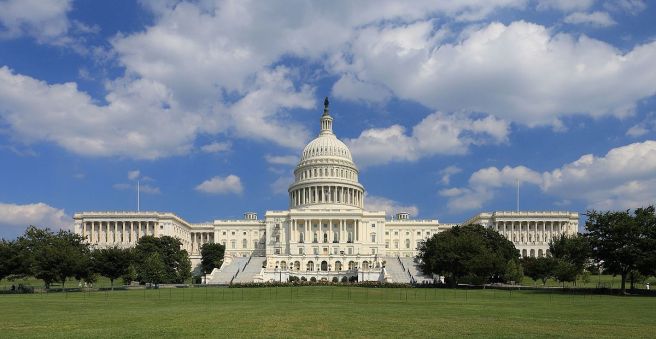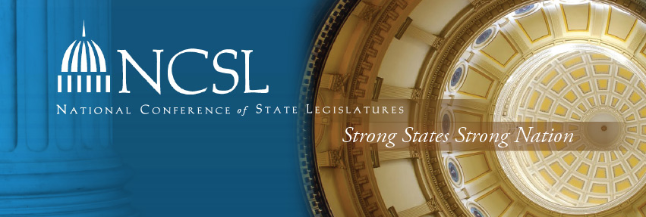MORE ON STATUTE RESOURCES, BILL TRACKING AND POLICY INFORMATION
Recall that we looked earlier at how a bill becomes a law. The bill is introduced into the state legislature or into Congress. It is assigned to a committee which often holds hearings, or perhaps may table the bill, stopping its progress. If the committee agrees to push the bill onward, it may write a committee report explaining why. A successful bill goes to the floor of the House or Senate where there may be debate, which is published for Congress in the Congressional Record, and may even be watched live on C-Span. State legislatures tend not to record so much, but the Massachusetts legislature publishes House and Senate Journals which summarize activity and votes. These may be viewed at the Massachusetts State Library.

The Massachusetts State Library is inside the State House, Room 341
IF the bill passes the original chamber, it must go through the same steps in the other chamber. If it is successful in both chambers of Congress or a state legislature, the Senate bill and House bill will vary, and there must be a Conference Committee, with members of both chambers to negotiate the final version of the bill. That final bill goes to both chambers for a vote, and if it passes again, then it goes to the President or governor to be signed into law. Remember that the bill may be signed OR vetoed or the President/governor may do nothing. This last may simply allow the bill to pass into law if it happens in the middle of a session. But at the end of a Congressional or legislative session, doing nothing is a “pocket veto” and allows the President or governor to veto the law without a showdown with the legislators since there will be no time for a veto vote!
If the bill is passed and signed into law, it is published first, on the federal level, as a “slip law,” with a Public Law number. The Public Law number is composed of the Congress number, and the consecutive number of law. It also has a title, date, and a citation to the Statutes at Large (Stat.) volume and page number. Below is an example, the first Public Law of the 115th Congress. You may notice Congress’ fondness for titles that form an acronym (TALENT Act of 2017). The bill citation is given as well, H.R. 39, a bill introduced into the House of Representatives.
H.R. 39 / Public Law 115-1 Tested Ability to Leverage Exceptional National Talent Act of 2017 (Jan. 20, 2017; 131 Stat. 3; 3 pages)
You may want to see the original text of a bill, state or federal, to know whether you would like your legislator to support or oppose it. There are a number of places to read bills. But some websites have extra features that are especially handy if you want to track how the bill is proceeding through the legislature or if you want to see what lobbyists are pouring money into affecting the vote! Some of these websites may also include notes on policy that may help you decide about your position, but you should certainly consider carefully when a website starts adding policy notes! You should look carefully at WHO is behind these websites and consider whether they are pushing any particular points of view. I have tried to select sources that present themselves as neutral, non-partisan, with missions focused on increasing citizen participation in democracy and increasing government transparency. However, organizations can change, so evaluate the site as you use it!
FEDERAL RESOURCES:

GovTrack bill tracker
This is probably the very best resource for tracking federal legislation and policy, or keeping track of your Congressional representatives or Senators!
Using the list at the very top of this “ABOUT” page, you can choose to track by member of Congress, by bill, by committee or to examine voting records. You can set up alerts so that you are sent an email or text when changes occur in a bill you are tracking. You can also read the short reports that this site posts. The day I visited to create this chapter for class, there was an interesting short report explaining that it costs one and a half cents to make each penny. And that is the reason behind the COINS bill introduced in the Senate. The U.S. Mint would cease production of pennies, relying on the existing pennies. There is more in the report, explaining effects on other coins, including changing dollar bills to coins, and changing how nickels are produced, since they also cost more than their worth. An interesting feature! The report continues to present the opposing side, mostly that of the companies that benefit, zinc producers, but also the results of an unofficial poll showing that the move might be unpopular with the public. The report ends with an analysis of the odds of passage, and a short history of similar bills. Most successful bills have a long history of previous attempts before they finally pass! GovTrack.us is a very useful and easy-to-use website for tracking bills. You can get the full text of any bill mentioned with a single click. You get the analysis, which is attributed, by name, and affiliation. (This COINS Act article was written by Jesse Rifkin, a GovTrack staff writer).
Maplight
A non-partisan, donation-based not-for profit that tracks the money in politics at the federal AND state level. Another excellent resource. Use the About tab to read their explanation of who started the webpage and what is their mission, how they fund it. They take data from GovTrack, above, and Open Secrets, which is mentioned below, and use the data to make the connections between money and political influence more clear. This website has clear design that makes it easy to use.

Follow the Money
https://www.followthemoney.org/
This site won a 2015 award from MacArthur Foundation for Creative and Effective Institutions. They are another nonpartisan, not for profit organization dedicated to tracking political spending and the influence of special interest groups. The specifically track lobbyists, and contributions to political parties and specific political candidates. They look at political expenditures. They look at spending on the federal offices, including President as well as Congress. The data can be sorted, but you have to filter it down to your interest level.
The Hill
An online newspaper focusing on Washington, D.C. legislative and regulatory news and policy. Consistently tries for non-partisan, very up to date.
Politico
An online magazine covering Washington politics and policy. Seems hard-hitting, factual, and even-handed.

This is an accessible PDF report that you can download and keep – I recommend doing just that! It was created for Congressional aides, but it’s available for anybody. The report lists free government resources, though it also includes some subscription sources and a few, like the Library of Congress, that would only be available to members of Congress for these purposes. However, you do have access to most of these materials, either over any Internet connection, or at most public or university libraries. Did you know that in order to get access to the online subscriptions of the Boston Public Library (BPL), you need only tell them that you are a resident of Massachusetts? If you already have a BPL regular library card, you do not need to get an ecard. But if you don’t have a regular card, it is more convenient to get the ecard and use their online resources than travel downtown to get the regular card!
Open Secrets Blog
“We follow the money. Inform, empower, advocate. Open Secrets [claims to be] the nation’s top resource for clear and unbiased information.”

Various tools from Sunlight Foundation
https://sunlightfoundation.com/tools/
Includes tools to measure foreign lobby influence, tracking political contributions, following the political fundraising circuit, tracking purchases of political ads, and tracking deleted tweets!
Federal Election Commission
http://www.fec.gov/finance/disclosure/norindsea.shtml
(after May, 2017, see it at classic.fec.gov; there will be a new design after May which may be previewed at http://beta.fec.gov) You can search here for political contributions by individuals, groups, corporations, tribes, or PACs which must be reported by law to the FEC. You can search for the contributor or the recipient. Not as easy to use as the non-profits, but it’s your government!
STATE BILL Tracking:

National Conference of State Legislatures 50 State Searchable Bill Tracker
This is a really useful tool to search for bills across multiple states by topic. It is updated weekly. Search by subtopics, year, status (e.g., pending, enacted, to governor, etc.) or enter keywords to identify bills.

Open States (from Sunlight Foundation)
Locate your state legislators, and review their votes; locate bills, track the bill’s progress. This is a very useful website and easy to use.
Map Light (states)
http://maplight.org/us-congress/legislator
Follow the Money
https://www.followthemoney.org/
This site won a 2015 award from MacArthur Foundation for Creative and Effective Institutions. They are another nonpartisan, not for profit organization dedicated to tracking political spending and the influence of special interest groups. The specifically track lobbyists, and contributions to political parties and specific political candidates. They look at political expenditures. They do look at spending on the federal offices, including President as well as Congress. But it appears that state and local races are the main focus only for a few states.
Many states have a campaign finance network or an ethics office which may have a website that can be located using Google or another web browser.
Problem – Practice
- What is S. 442 (in the current, 115th Congress) about? Can you get the name? What is the status? (try using GovTrack.us )
2. Look up S.J. Res. 34 (115th Congress) using Maplight. Can you tell what it does? Who supports it and who opposes it? What is the status?
3. Now, take a look at Verizon, using Maplight. Choose Companies from the yellow tabs. At the top of the new webpage, you will see a single sentence, beneath the large heading COMPANIES, “To search for a specific company or organization click here.” Click on the highlighted words and enter < verizon > in the search box.
Spend a moment to browse down the stories that appear mentioning Verizon’s spending to lobby for bills. But you will want to select U.S. Verizon, which will probably be the top entry.
There are actually no entries right now as I research for the very quickly passed bill S.J. Res. 34, but there are news stories about the lobbying money that telecoms brought to play in D.C. asking to be relieved of the Obama-era rules on consumer privacy. See http://abcnews.go.com/Technology/wireStory/influence-game-telecom-lobbying-muscle-kills-privacy-rules-46842668 and https://www.eff.org/deeplinks/2017/03/three-myths-telecom-industry-using-convince-congress-repeal-fccs-privacy-rules
4. Interestingly, the telecom companies seem to have shot themselves in the foot. It seems that several states are pushing laws through to replace the federal level consumer privacy rules. See the Boston Globe article. Illinois is close to passage of a bill.
California and Connecticut, for example, recently updated laws that restrict government access to online communications like e-mail, and New Mexico could follow soon. Last year, Nebraska and West Virginia passed laws that limit how companies can monitor employees’ social media accounts, while legislators in Hawaii, Missouri, and elsewhere are pushing similar bills for employees, as well as for students and tenants.
There are some subscription bill trackers, but you might try
National Conference of State Legislatures 50 State Searchable Bill Tracker
This terrific search tool will help you look at all 50 states’ legislatures at once. It has a handy “index” on the right hand side of the page, that includes “Telecommunications and Information Technology” as a main heading and “Privacy and Security” as a sub-heading under it. Sounds like just what we want. It turns out that the main heading is all we need. That is where they put the report on states rushing to fill the gap with Internet Privacy Legislation! Remember that this tool is updated once a week, so it gets a bit out of date, but then is brought back up periodically and reliably because it is designed for staff of state legislators.
5. Policy and Gossip! Take a look at The Hill.
Drudge tweets that Bill O’Reilly is out at Fox
Did the Democrats manage to win a congressional seat in Georgia???
(outcome was not certain when I created this chapter)
browse the policy articles
